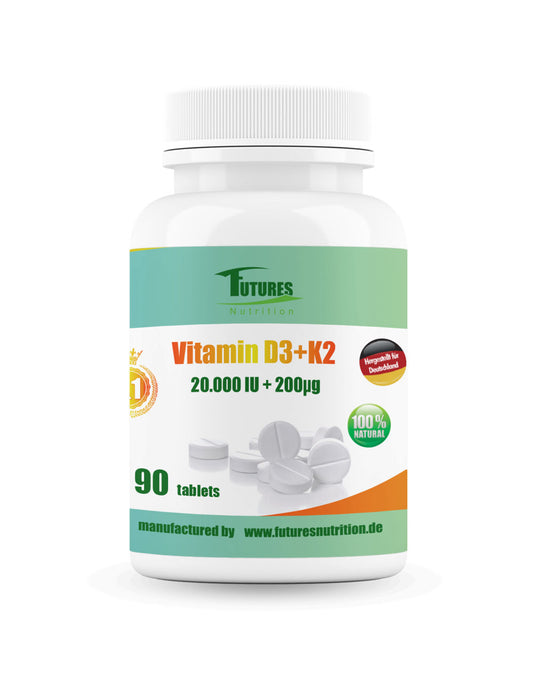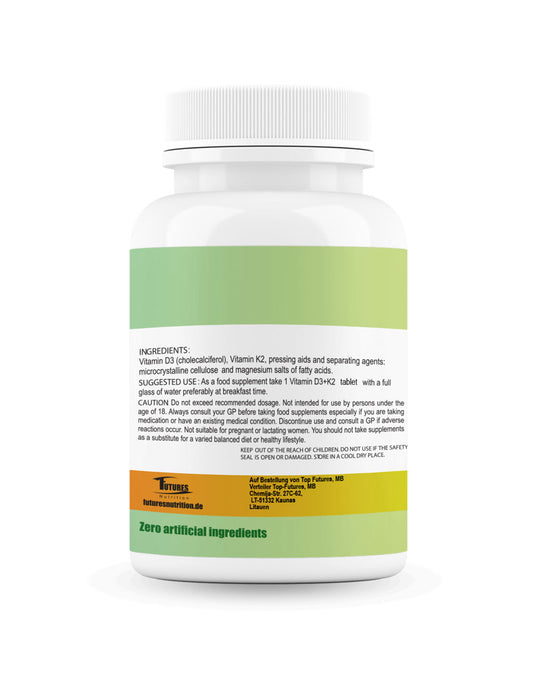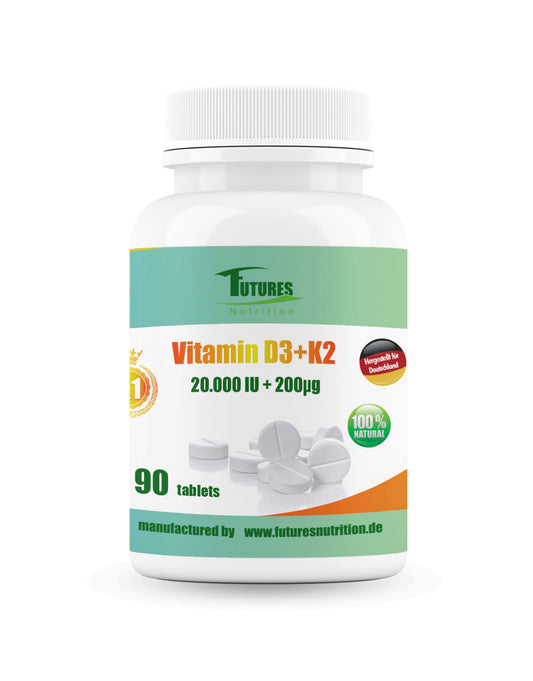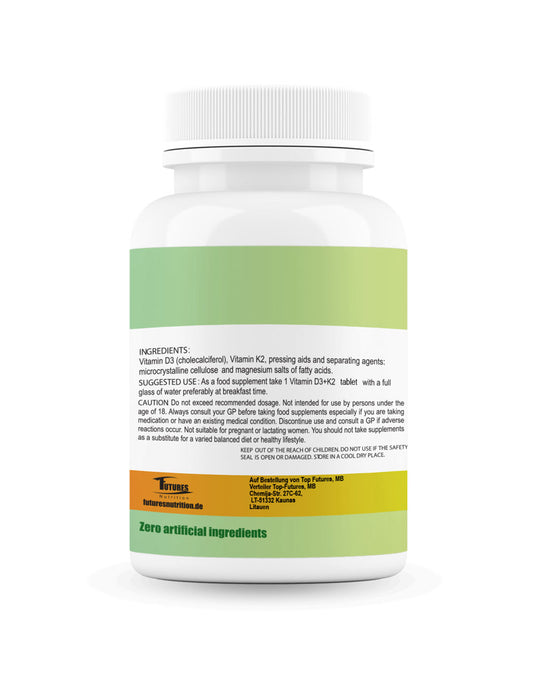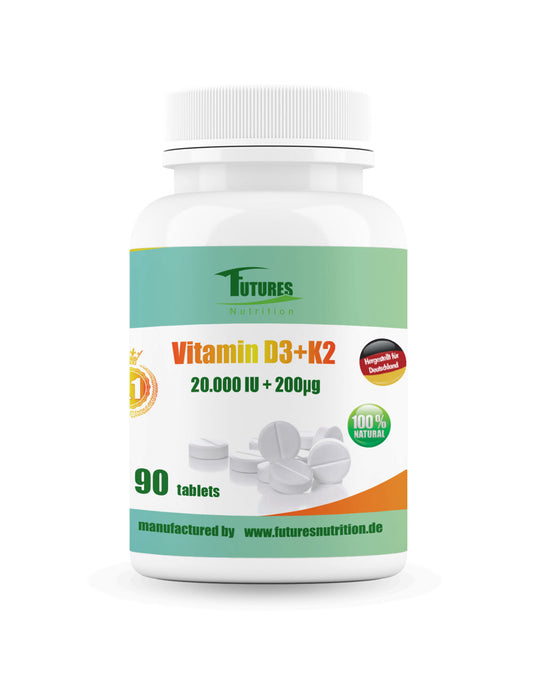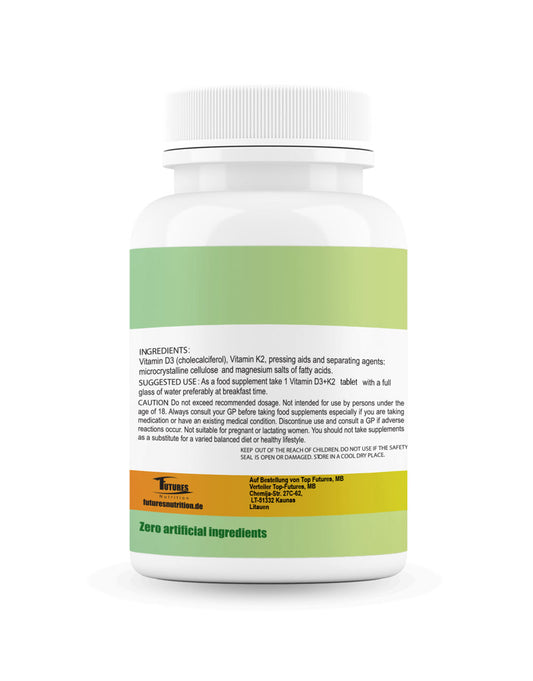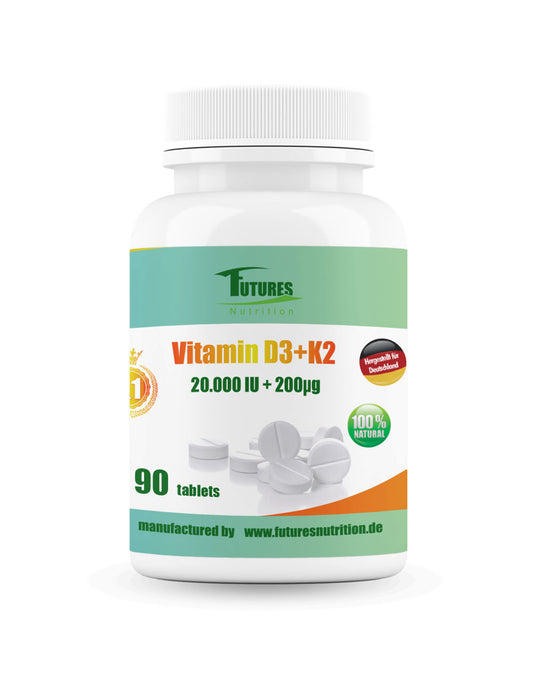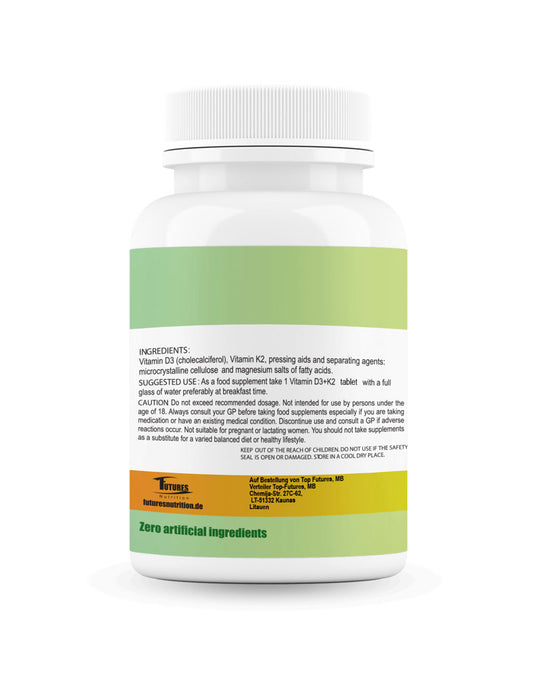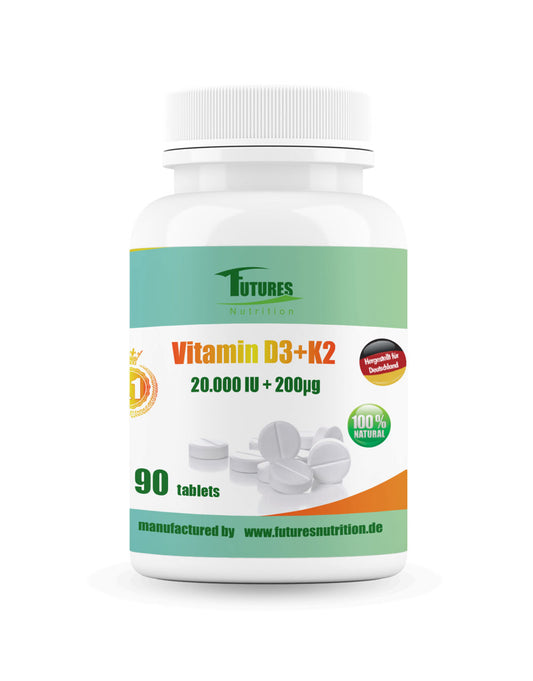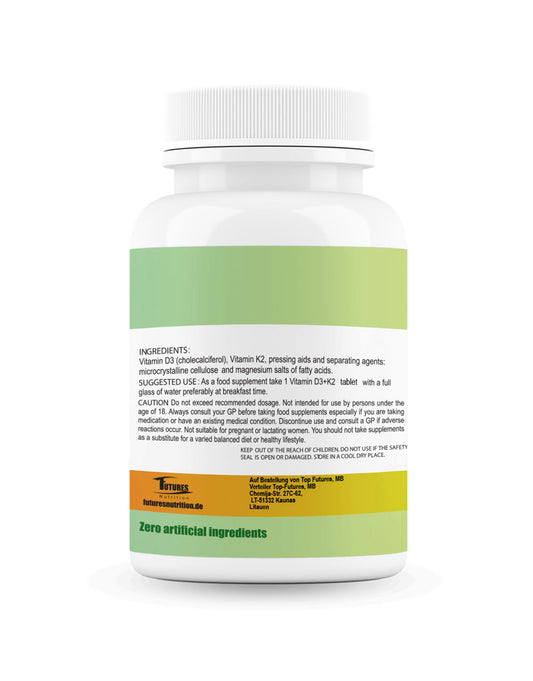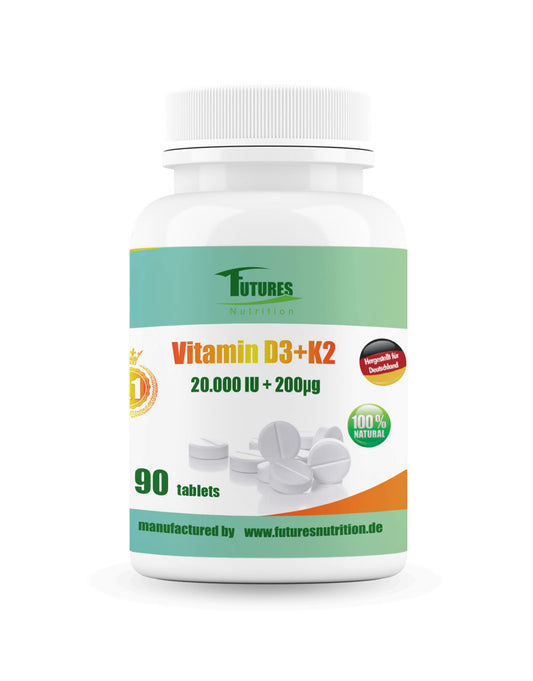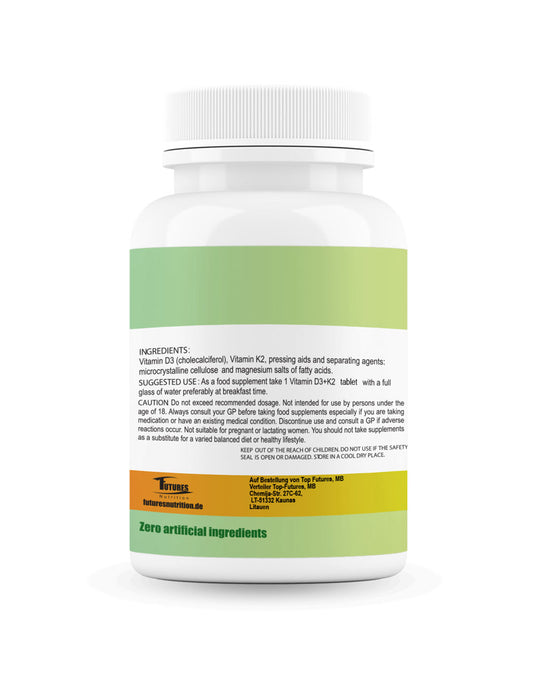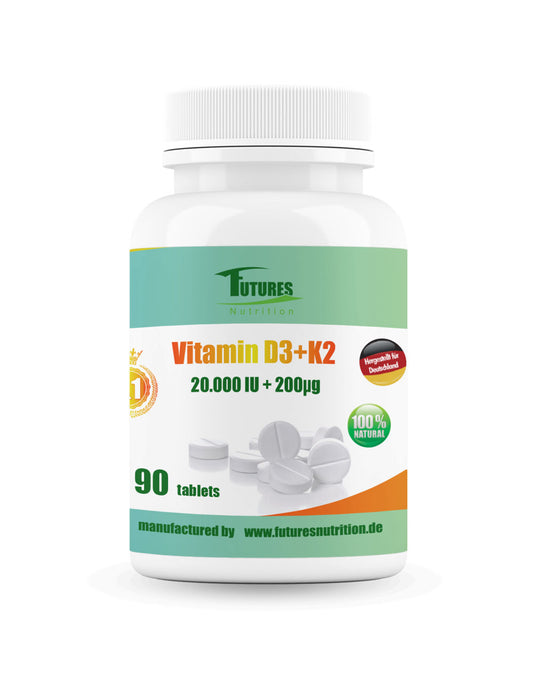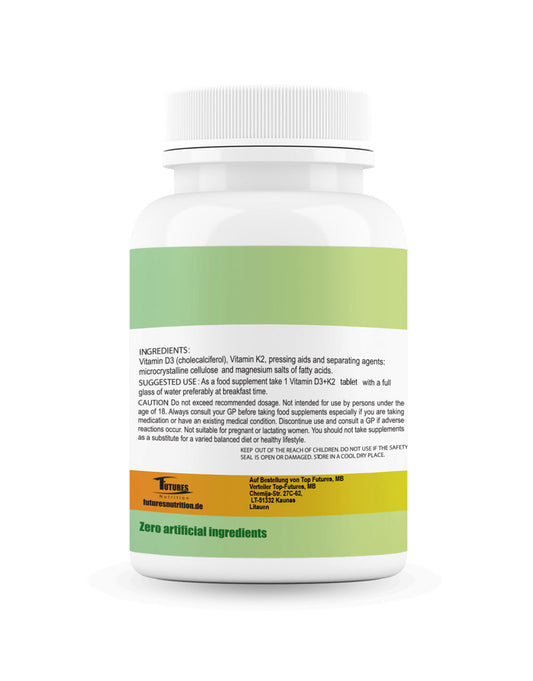I was put off by some of the reviews I saw on trust pilot but I bought the melatonin pills anyway because I was desperate. They work amazingly, they really help me fall asleep. I crush them into a powder and take them with water to make the effects stronger and these pills make me sleep within 10-20 minutes. Melatonin pills are hard to get on prescription in England so these pills are a perfect replacement. Now that I have these pills, I can start To fix my sleeping pattern and get my life moving again. Thank you futuresnutrition 😁!
Ashwagandha mit Melatonin 365 Tabletten - die beste Kombination für schnelle Entspannung

